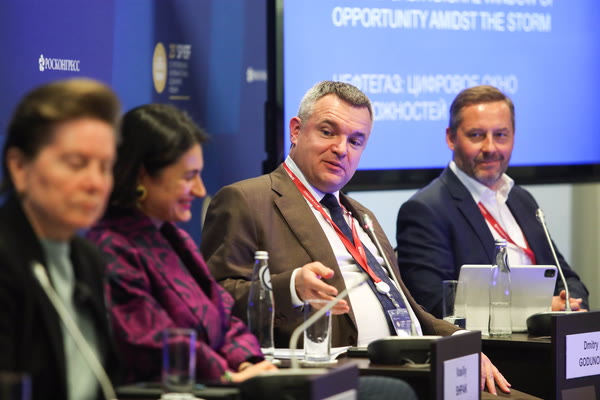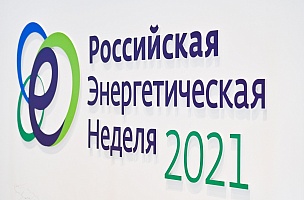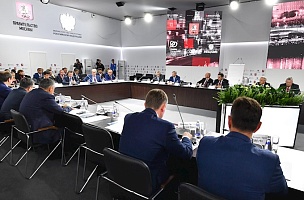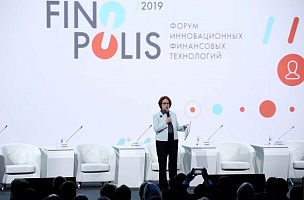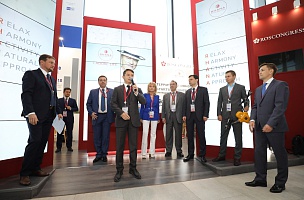Key conclusions
Foreign explorers have left but there is no disaster
“The situation is really complicated. Withdrawal or the declaration of withdrawal from the market by leading global vendors poses new challenges to the economy, particularly to the oil and gas industry. But, according to my assessment, there is no disaster, and no disaster is expected, because there we are prepared, especially in terms of software,” Maxim Parshin, Deputy Minister of Digital Development, Communications and Mass Media of the Russian Federation.
“We have been facing some of the current sanctions pressure since 2014. <...> In complex areas related to instrumentation, automation of production processes, we spent eight years building a catalog with testing of Russian instrumentation and products. We are finishing this work this year. By the end of the year, we will have 100% of the analogues that were selected and tested in our Omsk Technopark. We are beginning to share the results of this work with some of our colleagues,” Andrey Belevtsev, Director of Digital Transformation, Gazprom Neft.
Oil and gas software market has incredible potential
“The entire market of oilfield services in production is somewhere around RUB 1.5 trillion of direct costs alone, of which... the cost of calculations and software will be RUB 150–200 billion. The volume of services in oil refining is smaller, but it is also high. <...> If you add everything up, plus additional services not directly related to production and refining that are ordered by oil companies, then... we are talking about a market of potentially several hundred billion roubles. This is one of the largest markets in the country. Right now, the supply of domestic industry software in this market is 5–10%,” Pavel Sorokin, First Deputy Minister of Energy of the Russian Federation.
“In the past, a large number of foreign shareholders, due to their legal constraints, were not always ready to implement the recommendations of the regulator. Now the situation has changed. There is a qualified customer, there is a fairly large order, and the industry has the capabilities and ability to implement it. There is money and resources to do this. We must rush in this direction. The relevant decisions are fixed at the highest level. <...> Deadlines are evident, goals are clear, tasks are set,” Vasiliy Shpak, Deputy Minister of Industry and Trade of the Russian Federation.
“Software can be conventionally divided into system-wide solutions, which are in demand in any large business, in any sector. The second direction is industry-specific, specialized solutions, which are needed by companies of this or that industry. As far as system solutions are concerned, the Ministry of Digital Security is ready to coordinate the development of such products. If we are talking about industry solutions, we will, of course, to a greater extent rely on business,” Maxim Parshin, Deputy Minister of Digital Development, Communications and Mass Media of the Russian Federation.
PROBLEMS
Software requirements need to be standardized
“If no one was seriously involved with this issue before, now the opposite has happened. Everyone ran there at once. It's the same with us: everyone wants to have a fully subsistent economy. Everyone's decisions should be original, self-sufficient, and extremely independent. <...> Probably this is one of those issues that regulators should pay close attention to,” Vasiliy Shpak, Deputy Minister of Industry and Trade of the Russian Federation.
Foreign made software cannot be replaced overnight
“[It is necessary] to understand that at the initial stage we can take up no more that 20–25% of this market with Russian software, because 100% creates risks. The software will not be finalized, while the price of an error is extremely high. If you make a mistake with the well because the software has miscalculated hydraulic fracturing, you will lose the whole well at once, and possibly damage the field and the reservoir,” Pavel Sorokin, First Deputy Minister of Energy of the Russian Federation.
“The competition for developers' resources, which are actually not that many, has begun. <...> Once we have built the [software] stack that is needed, we must sit down with the developers themselves and decide, not allowing them to speculate on our misfortune. The prices for development, delivery, and implementation will immediately start creeping up,” Vasiliy Shpak, Deputy Minister of Industry and Trade of the Russian Federation.
SOLUTIONS
Creating state centres to coordinate design
“Everything that has been mentioned here – these are complex projects that require different approaches, not those that are used in ordinary life. Our organization created a coordination centre, which was originally, before all these events, was designed to solve such problems. <...> To do projects where you have to help bring people together who would not normally cooperate, and that includes both government agencies, which are usually the hardest to deal with, and businesses,” Dmitry Godunov, First Deputy Head, Analytical Center for the Government of the Russian Federation.
“We propose... to consider creating a distributed software centre for oil companies. Why? There is trust – it is a state-run website, a testing ground of the state. Each company retains its individuality, its independence and does not introduce itself to the site of another company,” Natalya Komarova, Governor of Khanty-Mansi Autonomous Area – Yugra.
Careful software testing
“It is impossible to give 100% at once for untested solutions. And this means that some of the software will be chased in parallel... so that we can compare the results obtained with imported software, which we have, and domestic software. This, too, will additionally inflate the cost, but here there is cooperation with the Ministry of Digital, to subsidize just such costs,” Pavel Sorokin, First Deputy Minister of Energy of the Russian Federation.
“Creating industry demand, understanding it, plus the distribution of orders will minimize risks and have for the maximum amount of data on the maximum number of users to finalize this software,” Pavel Sorokin, First Deputy Minister of Energy of the Russian Federation.
For more information, visit the Roscongress Foundation’s Information and Analytical System at roscongress.org.


